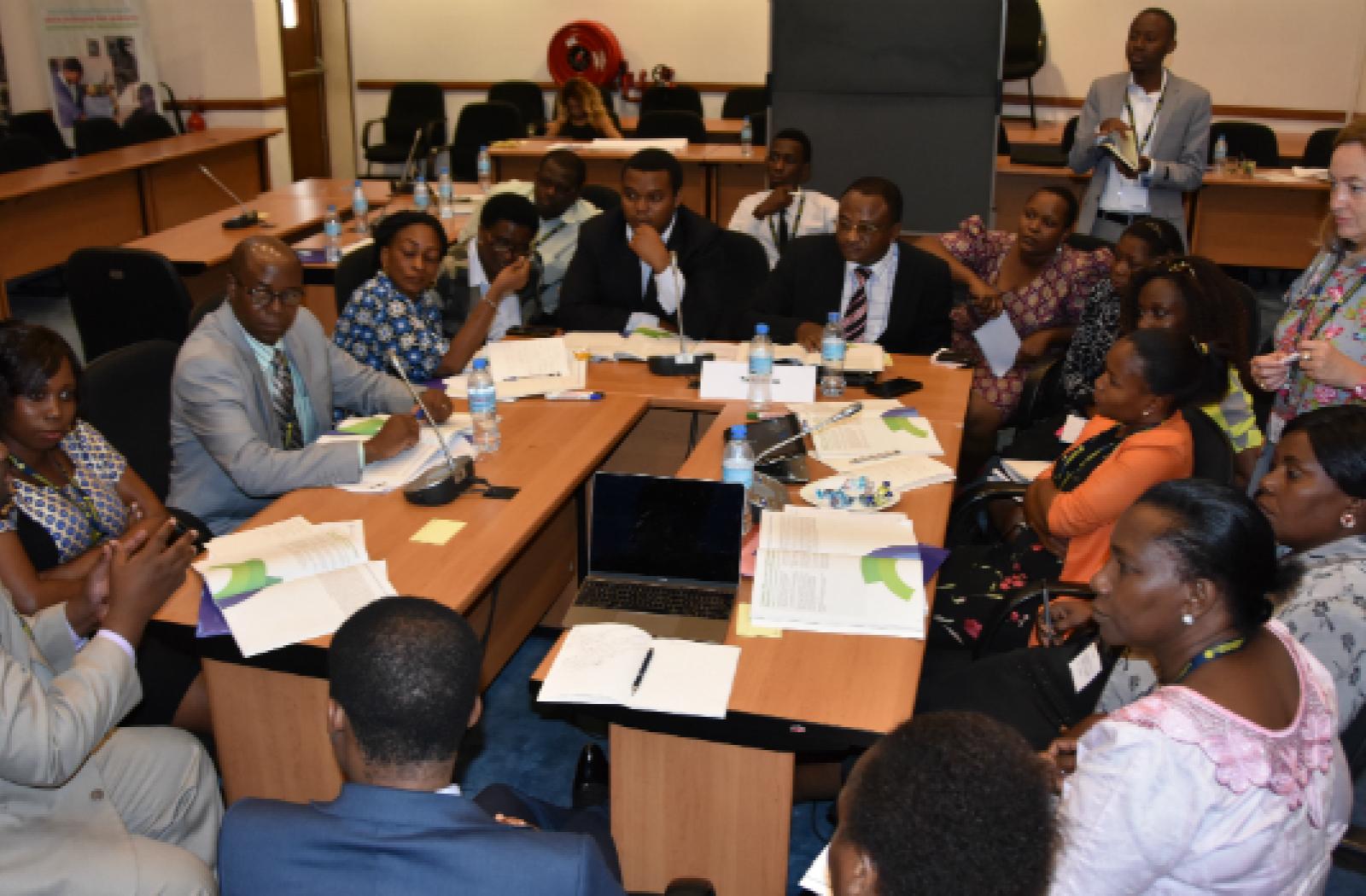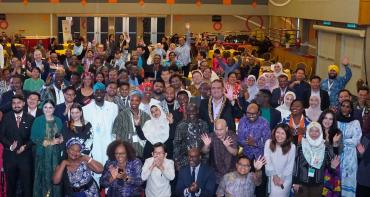Government officials and young entrepreneurs representing eight Commonwealth countries in Africa have committed to advancing youth entrepreneurship by developing cohesive national strategies and cross-sector cooperation.

Government officials and young entrepreneurs representing eight Commonwealth countries in Africa have committed to advancing youth entrepreneurship by developing cohesive national strategies and cross-sector cooperation.
The pledge came during a regional technical workshop on youth entrepreneurship for over 50 key officials from ministries of labour, youth affairs, trade and industry, representatives of the Commonwealth Alliance of Young Entrepreneurs–East Africa (CAYE-EA), and NGO and intergovernmental technical experts.
The workshop was convened by the Commonwealth Secretariat in partnership with the United Nations Conference on Trade and Development (UNCTAD) and the International Labour Organisation, and hosted by the Government of Tanzania.
As global youth unemployment levels remain persistently high and economies stagnate, attention is increasingly being paid to the role of youth entrepreneurship as a powerful strategy to boost job creation and positively unleash young people’s energy and potential for national growth.
Eric Shitindi, Permanent Secretary of Tanzania’s Ministry of Labour, Youth, Employment and Persons with Disabilities, opened the event with a call to action, saying: “I urge all attending this workshop to call on your governments to act on creating conditions which are conducive to youth entrepreneurship. The world’s large and growing youth population can be a powerful and transformative force for a better world if the right investments and decisions are made now.”
The event was the first of a series of regional technical workshops planned by the Commonwealth Secretariat, based on a Policy Guide on Youth Entrepreneurship developed in partnership with UNCTAD and launched in November 2015. The guide aims to assist Commonwealth countries to create environments that are optimal for youth entrepreneurship to flourish, featuring key pillars such as youth-friendly regulatory environments, access to finance, enhanced entrepreneurship education, and harnessing the value of ICT and networks.
Over the three-day workshop, senior officials, young entrepreneurs, and technical experts examined national youth entrepreneurship environments, trade opportunities and labour market conditions in East Africa, shared related good practices and challenges, and worked in cross-sector groupings on national plans of action for progressing youth entrepreneurship in their countries.
Katherine Ellis, Director of Youth Affairs at the Commonwealth Secretariat, said: “The Commonwealth has made concerted efforts over many years to promote youth entrepreneurship as a key strategy for job creation and economic growth, and to ultimately address the critical issue of high youth unemployment. This workshop was a milestone in that work, with participants developing a new collaborative approach, and a clear picture of and commitment to the actions required at their national level to ignite youth entrepreneurship in their country.”
Participants commented on how much they had learnt about the challenges and opportunities of youth entrepreneurship, citing good practice examples that they intend to adapt in their own countries, and expressing appreciation of the new policy guide.
At least half the countries represented now plan to convene national stakeholder forums and taskforces and plan to review their regulatory and tax systems to find ways to ease the burden and costs of business start-up for young people. Two countries without dedicated youth enterprise development funds will also consider creating such mechanisms.
Daisry Mathias, Presidential Advisor of Youth Matters and Enterprise Development of the Government of Namibia, said: “The workshop has come at an opportune time for Namibia. The diverse group representation enabled insightful shared learning and best practices, and the Commonwealth Secretariat, supported by UNCTAD and ILO, have demonstrated their thought leadership on the subjects of youth development and youth entrepreneurship.
“The workshop programme was well structured and relevant to our government's information needs, and will assist us to develop a policy that is distinctly and uniquely positioned within the general SME policy landscape,” he added.
“It was a very informative, interactive forum,” said Caroline Mugoh, Senior Assistant Director Youth Development at Kenya’s Ministry of Public Service, Youth and Gender. “We have learned a lot about actions and measures to promote youth entrepreneurship that we can incorporate in the National Youth Empowerment Strategy before it is finalised.”
Almost all countries noted gaps in their entrepreneurship education strategies, and discussed enhancement plans such as expanding training throughout the whole education system, making it more practice oriented, and improving awareness and acceptance of entrepreneurship as a valid career choice.
Barry Assary, Director of Policy, Strategy and Research at Seychelles’ Ministry of Investment, Entrepreneurship Development and Business Innovation, said the workshop “provided opportunities for me to benchmark our progress with other countries. It has further provided a useful guide as a reference for our current process of formulating the Seychelles Youth Entrepreneurship Policy, which will be considered as an offshoot of the SME Development Policy.”
All the government representatives noted a greater appreciation of the importance of including young entrepreneurs themselves in planning and decision making processes.
Martin Ruvugabigwi from Rwanda, Chair of the Commonwealth Alliance of Young Entrepreneurs - East Africa (CAYE-EA), spoke of the “stark challenge” of youth employment in Africa, where young people represent 70 per cent of the overall population.
“It is imperative for governments in Africa to identify and promote alternative pathways to economic empowerment if they are to fulfil the aspirations and potential of their young people,” said Mr Ruvugabigwi. “Young entrepreneurs must be recognised as agents of positive change and creators of jobs in their communities and countries.”
Launched in 2015, CAYE-EA works to enhance the economic participation of young people through policy advocacy, development of trade opportunities, and sharing of good practice.
Mrs Abdool Raman Ahmed, Deputy Permanent Secretary of Mauritius’ Ministry of Labour, IR, Employment and Training, added: “As a policy-maker, it is always helpful to hear another viewpoint, to be able to formulate inclusive policies for the benefit of one and all.”
Wanziya Chirwa Kampyongo, Senior Planner at Zambia’s Ministry of Youth, Sport and Child Development, said: “The workshop has opened up our minds on how best we can move the agenda forward on youth entrepreneurship in Zambia.”
Photo caption : Delegates discussing how best to develop cohesive national strategies and cross-sector cooperation.



